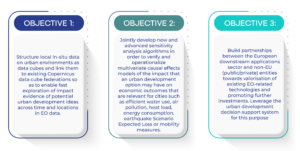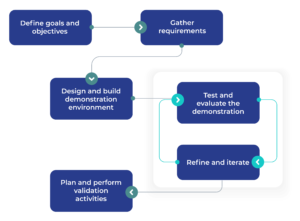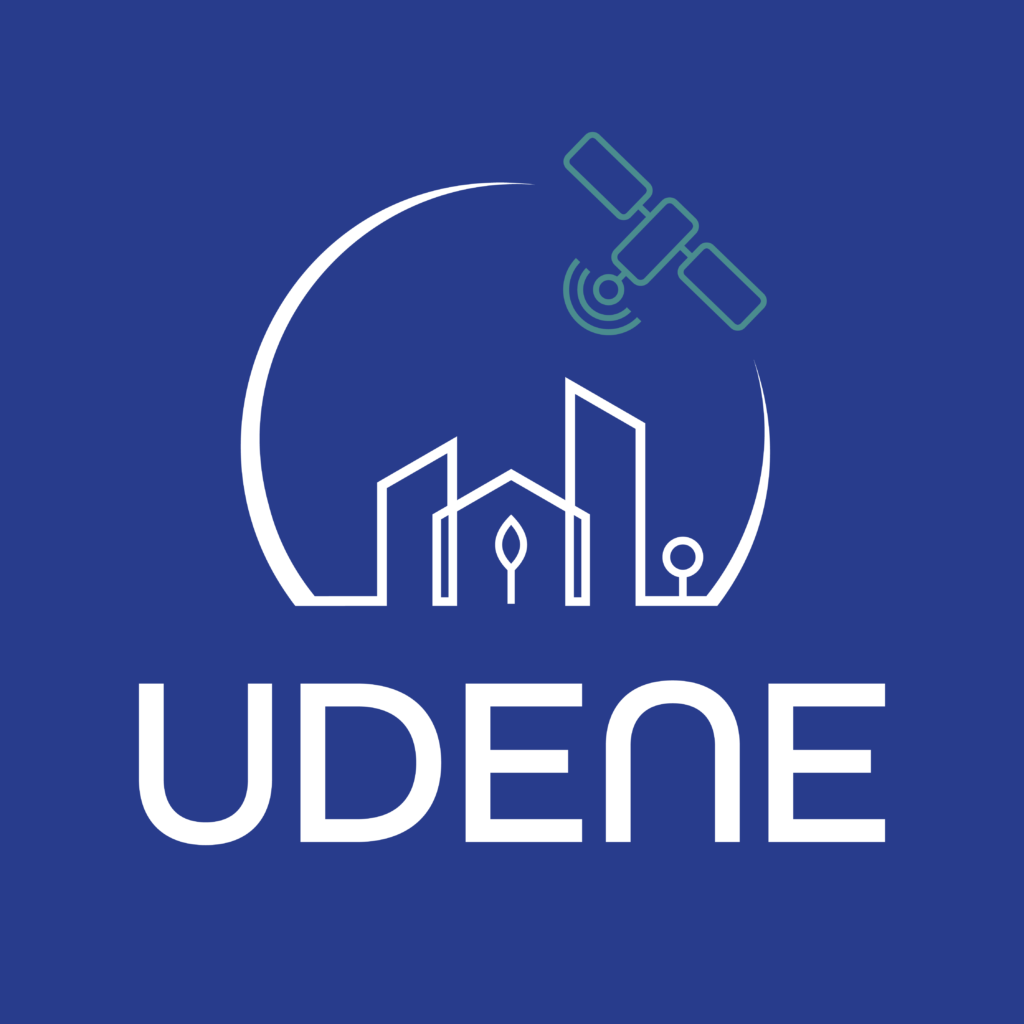Urbanization is increasing globally, with almost all cities growing in population. This growth is more prominent in Europe and North Africa, where 70% and 78% of people, respectively, live in cities. Climate change, inequalities and conflict drive huge populations to cities, in search of a better life. However, urban development is not generally guided by evidence-based informed decisions, especially in emerging countries. As a result, liveability in cities worsen. The UDENE Project aims to use large amounts of Earth Observation (EO) data from Copernicus satellites and local sources to support evidence-based decision making for urban development, especially in international partner countries. To support the UN Sustainable Development Goal 11 of making cities safe, resilient, and sustainable, the project will essentially create a virtual laboratory for urban planners and visionaries to test their development ideas. Multi-dimensional models of urban areas across time and across countries will be used to support urban planners in exploring natural occurrences of similar development ideas, concepts, or projects in similar urban areas (natural experiments). The wealth of EO data in fast accessible Data Cube format provides a great search space for exploring natural experiments, by exploiting greater value-add of causal analysis. Project outcomes will be embodied by an exploration tool for natural experiments and a matchmaking tool which will leverage the exploration tool by linking the existing EO product, process, or service offerings. Project activities include cooperations for data acquisition and partnership building that will be facilitated by Open (FSTP) Calls. We are confident that our evidence-based approach for urban development as powered by vast EO data will complement the existing EO product or service offers and expand the European excellence in EO technology utilization with urban development applications that have high economic and societal impact.
About
Objectives and Ambitions:
Our general objective is to provide a virtual laboratory for urban visionaries, planners, and developers of international partner countries, where they can test specific impacts of their ideas with natural experiments that occurred in another place and/or at another time, thanks to the data available via the Copernicus programme. Furthermore, their application domain will be bridged to the European space industry, SMEs, universities, laboratories, and GEO initiatives promoting the uptake of their activities in international partner countries.

Impact:
The Exploration and Matchmaking Tools will concretely reflect the impact of the project. The UDENE project will facilitate evidence-based urban planning and decision making to enhance life quality in cities and ensure their safety, resilience, and sustainability.
The UDENE project will also promote Copernicus data and services within international partners countries, and especially in the three use cases analysed by UDENE: Turkey, Tunisia and Serbia. Doing so, the project will enable connections between the European EO value chain and geographically relevant partner countries.
Methodology:
The overall methodology adopted in the UDENE project is based on Use Case Driven Targeted R&D&I. Use case driven demonstration of research and innovation refers to a method of validating the feasibility and potential impact of a technology or solution by creating a working prototype or simulation that is based on well-defined use cases.

A use case is a scenario in which the technology or solution will be used, and it provides a clear and realistic representation of the requirements and challenges of the target environment. The target environment for the UDENE project is the urban development planning context, which will be the central theme of all the Use Cases.
The use case driven approach helps to ensure that the R&D&I project is focused on solving real-world problems and meeting the needs of the stakeholders. By validating the technology or solution in the context of real-world scenarios, the project can demonstrate its potential impact and help to build confidence in the technology.
The methodology starts by elaborating the Use Cases that are provided in the project proposal and then follows the below steps:
- Define goals and objectives: Define the goals and objectives of the demonstration, which may include verifying the feasibility of the technology or solution, demonstrating its potential impact, or testing its performance under different conditions.
- Gather requirements: Gather the requirements for the demonstration, including the technical requirements, data requirements, and user requirements.
- Design and build the demonstration environment: Design and build the demonstration environment, taking into account the requirements and use cases. This may involve creating a working prototype or a simulation of the technology or solution.
- Test and evaluate the demonstration: Test the demonstration using the use cases and evaluate the results. This may involve collecting data, conducting user tests, or running performance tests.
- Refine and iterate: Based on the results of the testing, refine and iterate the demonstration as needed. This may involve making changes to the technology or solution or adjusting the use cases to better reflect real-world scenarios.
- Plan and perform validation activities: The tested outcomes are taken to pilot activities with the real end-users for validation purposes. Validation of their value propositions and quality for further exploitation is essential to achieve TRL4 status prior to transferring the technology to industry.

This systematic and rigorous approach helps validate the feasibility and potential impact of the proposed decision support system and the potential of Copernicus Services within the context of the UN SDG 11 on urban development. It implies focusing on a set of use cases, and subsequent requirements gathering, design and building, testing and evaluation, refinement and iteration, and validation activities that are driven by the use cases, thus enabling a result-based approach.
